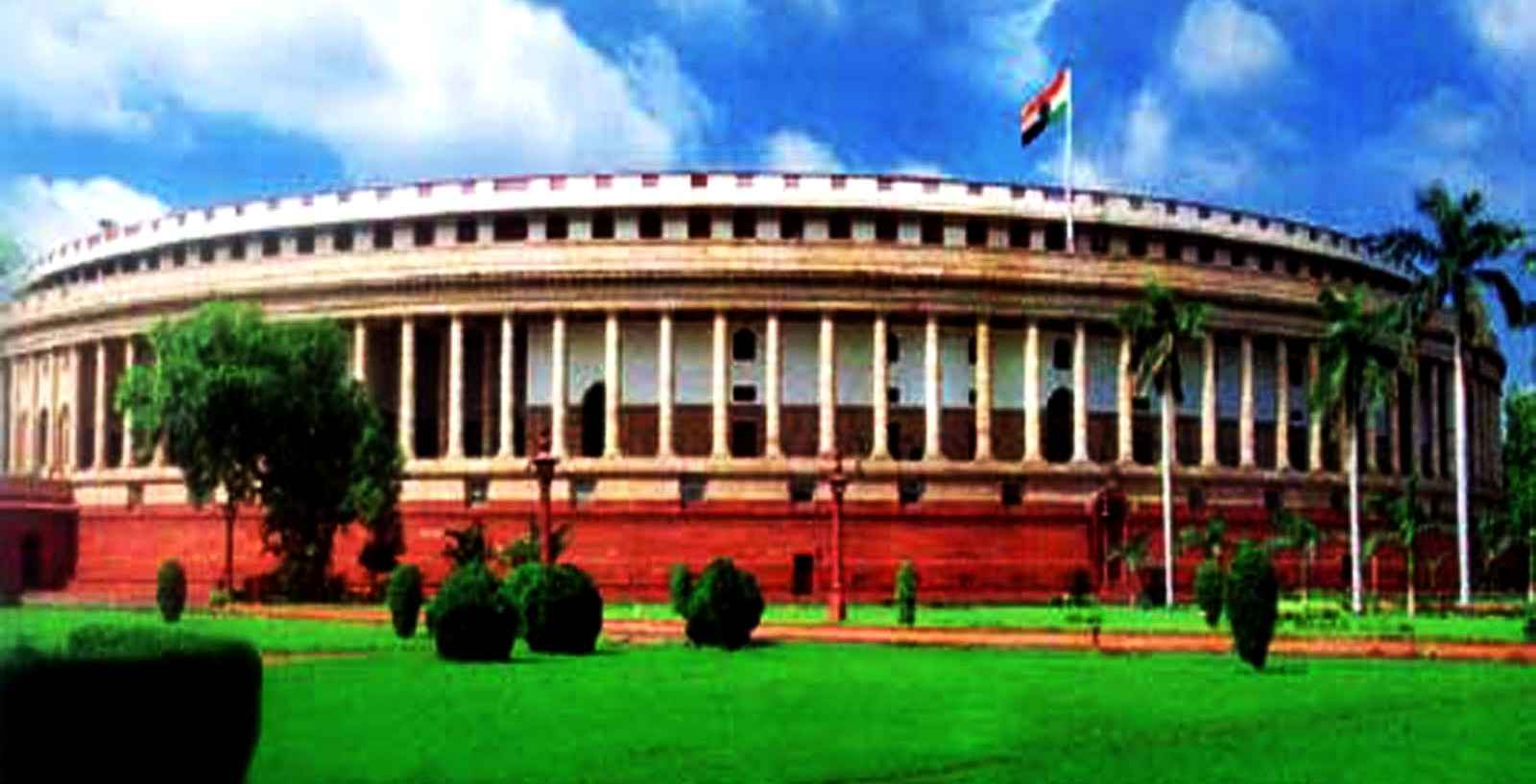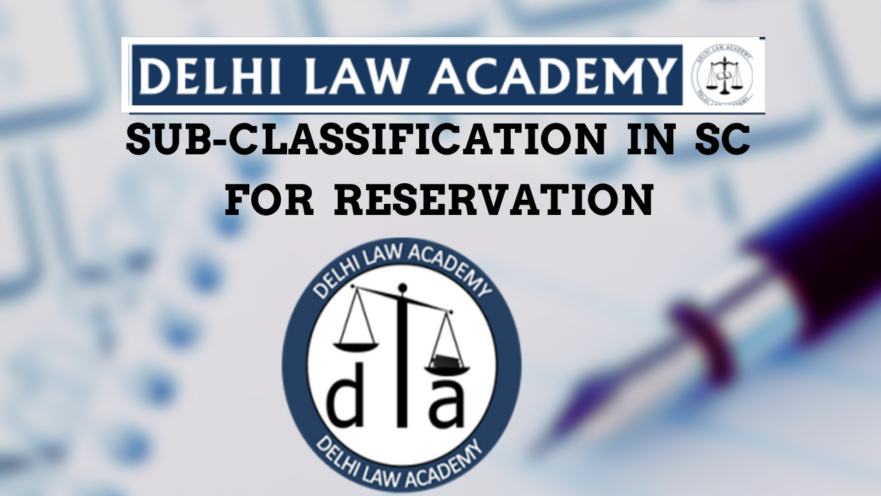
Sub-classification within the Scheduled Castes for Reservations
Sub-classification within the Scheduled Castes for Reservations
In State of Punjab v. Davinder Singh a seven-judge Bench of the Supreme Court upheld the validity of sub-classification within Scheduled Castes by a 6:1 majority in a landmark judgment delivered on 1 August 2024.
This decision overruled the five-judge bench decision of 2004 in E.V. Chinaiah v State of Andhra Pradesh.
This judgment is based on Article 14 of our Constitution which stipulates that the State shall not deny to any person equality before the law or the equal protection of laws within the territory of India.
The other constitutional provisions considered by the Supreme Court are as under: (i) Article 15(1) which states that the State should not discriminate against any citizen on grounds only of religion, race, caste, sex, place of birth or any of them.
(ii) Article 15(4) which stipulates that nothing in Article 15 shall prevent the State from making any special provision for the advancement of any socially and educationally backward classes of citizens or for the Scheduled Castes and the Scheduled Tribes.
(iii) Article 16 which deals with equality of opportunity in matters of public employment. Clause (1) of Article 16 guarantees equality of opportunity for all citizens in matters relating to employment or appointment to any office under the State. Clause (2) stipulates that no citizen shall be discriminated in or be ineligible for any employment or office under the State on the grounds only of religion, race, caste, sex, descent, place of birth, residence or any of them.
(iv) Clause (4) of Article 16 which states that nothing in Article 16 shall prevent the State from making any provision for the reservation of appointments or posts in favour of any backward class of citizens, which in the opinion of the State, is not adequately represented in the services under the State.
(v) Article 366(24) which defines the term ‘Scheduled Castes’ to mean such castes, tribes or parts of or groups within such castes, races or tribes as are deemed under Article 341 to be Scheduled Castes for the purposes of the Constitution.
(vi) Article 341(1) which grants the President the power to notify the castes, races or tribes (or parts of or groups within castes, races or tribes) which shall be deemed to be Scheduled Castes for a State or a Union Territory for the purposes of the Constitution. The President has been empowered to issue the notification with respect to a State in consultation with the Governor of the State.
(vii) Article 341(2) which stipulates that Parliament may by law include or exclude any caste, race, or tribe (or part of or group within any caste, race, or tribe) from the list of Scheduled Castes specified in the notification and that a notification issued under clause (1) shall not be varied by any subsequent notification.
The Supreme Court delivered a split decision with Justice Bela Trivedi dissenting.
These are the conclusions arrived at by Justice Dr D Y Chandrachud CJI in his judgment delivered on behalf of himself and Justice Manoj Mishra
These are the conclusions arrived at by Justice Dr D Y Chandrachud CJI in his judgment delivered on behalf of himself and Justice Manoj Mishra:
- Article 14 of the Constitution permits sub-classification of a class which is not similarly situated for the purpose of the law. The Court while testing the validity of sub-classification must determine if the class is a homogenous integrated class for fulfilling the objective of the sub-classification. If the class is not integrated for the purpose, the class can be further classified upon the fulfilment of the two-prong intelligible differentia standard
- In Indra Sawhney, this Court did not limit the application of sub-classification only to the Other Backward Class. This Court upheld the application of the principle to beneficiary classes under Articles 15(4) and 16(4)
- Article 341(1) does not create a deeming fiction. The phrase “deemed” is used in the provision to mean that the castes or groups notified by the President shall be “regarded as” the Scheduled Castes. Even if it is accepted that the deeming fiction is used for the creation of a constitutional identity, the only logical consequence that flows from it is that castes included in the list will receive the benefits that the Constitution provides to the Scheduled Castes. The operation of the provision does not create an integrated homogenous class
- Sub-classification within the Scheduled Castes does not violate Article 341(2) because the castes are not per se included in or excluded from the List. Sub-classification would violate the provision only when either preference or exclusive benefit is provided to certain castes or groups of the Scheduled Castes over all the seats reserved for the class
- Historical and empirical evidence demonstrates that the Scheduled Castes are a socially heterogeneous class.
- Thus, the State in exercise of the power under Articles 15(4) and 16(4) can further classify the Scheduled Castes if
(a) there is a rational principle for differentiation; and
(b) the rational principle has a nexus with the purpose of sub-classification
- The holding in Chinnaiah that sub-classification of the Scheduled Castes is impermissible is overruled.
- The scope of sub-classification of the Scheduled Castes is summarized below:
(i) The objective of any form of affirmative action including sub-classification is to provide substantive equality of opportunity for the backward classes. The State can sub-classify, inter alia, based on inadequate representation of certain castes. However, the State must establish that the inadequacy of representation of a caste/group is because of its backwardness;
(ii) The State must collect data on the inadequacy of representation in the “services of the State” because it is used as an indicator of backwardness;
(iii) Article 335 of the Constitution is not a limitation on the exercise of power under Articles 16(1) and 16(4). Rather, it is a restatement of the necessity of considering the claims of the Scheduled Castes and the Scheduled Tribes in public services. Efficiency of administration must be viewed in a manner which promotes inclusion and equality as required by Article 16(1).
Preparing for Judicial Services Exam?
Delhi Law Academy offers complete study material and notes for Judicial Services Exam Preparation
Click Here to find out morevery helpful

